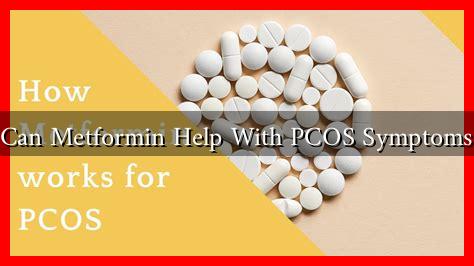-
Table of Contents
Can Metformin Help With PCOS Symptoms?
Polycystic Ovary Syndrome (PCOS) is a common hormonal disorder affecting women of reproductive age. Characterized by irregular menstrual cycles, excess androgen levels, and polycystic ovaries, PCOS can lead to a range of symptoms including weight gain, acne, and infertility. One medication that has gained attention for its potential benefits in managing PCOS symptoms is Metformin, a drug primarily used to treat type 2 diabetes. This article explores the relationship between Metformin and PCOS, examining its effectiveness, mechanisms, and potential side effects.
Understanding PCOS and Its Symptoms
PCOS affects approximately 5-10% of women in their reproductive years, making it one of the most common endocrine disorders. The symptoms can vary widely among individuals but often include:
- Irregular or absent menstrual periods
- Excessive hair growth (hirsutism)
- Acne and oily skin
- Weight gain or difficulty losing weight
- Thinning hair or male-pattern baldness
- Infertility
These symptoms can significantly impact a woman’s quality of life, leading to emotional distress and long-term health complications such as diabetes and cardiovascular disease.
What is Metformin?
Metformin is an oral medication that helps control blood sugar levels in people with type 2 diabetes. It works by improving insulin sensitivity and reducing glucose production in the liver. Given that insulin resistance is a common feature of PCOS, researchers have investigated whether Metformin could alleviate some of the symptoms associated with the condition.
How Metformin Can Help with PCOS Symptoms
Several studies have suggested that Metformin may be beneficial for women with PCOS, particularly those who are insulin resistant. Here are some of the ways Metformin can help:
- Improving Insulin Sensitivity: Metformin enhances the body’s response to insulin, which can help regulate menstrual cycles and improve ovulation.
- Weight Management: Some studies indicate that Metformin can aid in weight loss, which is particularly beneficial for overweight women with PCOS.
- Reducing Androgen Levels: Metformin may help lower elevated androgen levels, leading to a reduction in symptoms like hirsutism and acne.
- Enhancing Fertility: By promoting regular ovulation, Metformin can improve fertility outcomes in women with PCOS.
Evidence from Research
Numerous studies have explored the effects of Metformin on PCOS. A meta-analysis published in the journal Human Reproduction Update found that Metformin significantly improved menstrual regularity and ovulation rates in women with PCOS. Another study indicated that women taking Metformin experienced a 30% reduction in hirsutism scores compared to those not on the medication.
In a clinical trial involving 200 women with PCOS, those treated with Metformin showed a significant decrease in body mass index (BMI) and improved insulin sensitivity after six months of treatment. These findings suggest that Metformin can be an effective adjunct therapy for managing PCOS symptoms.
Potential Side Effects of Metformin
While Metformin is generally well-tolerated, it is not without side effects. Common side effects include:
- Nausea and vomiting
- Diarrhea
- Abdominal discomfort
- Metallic taste in the mouth
In rare cases, Metformin can lead to a serious condition called lactic acidosis, particularly in individuals with kidney problems. Therefore, it is essential for women considering Metformin for PCOS to consult with their healthcare provider to weigh the benefits and risks.
Conclusion
Metformin has emerged as a promising option for managing PCOS symptoms, particularly for those with insulin resistance. Its ability to improve insulin sensitivity, promote weight loss, and reduce androgen levels makes it a valuable tool in the treatment of this complex condition. However, as with any medication, it is crucial to discuss its use with a healthcare professional to ensure it aligns with individual health needs and circumstances.
In summary, while Metformin is not a cure for PCOS, it can significantly alleviate some of the symptoms and improve the quality of life for many women. Ongoing research will continue to shed light on its long-term effects and potential benefits in the management of PCOS.

